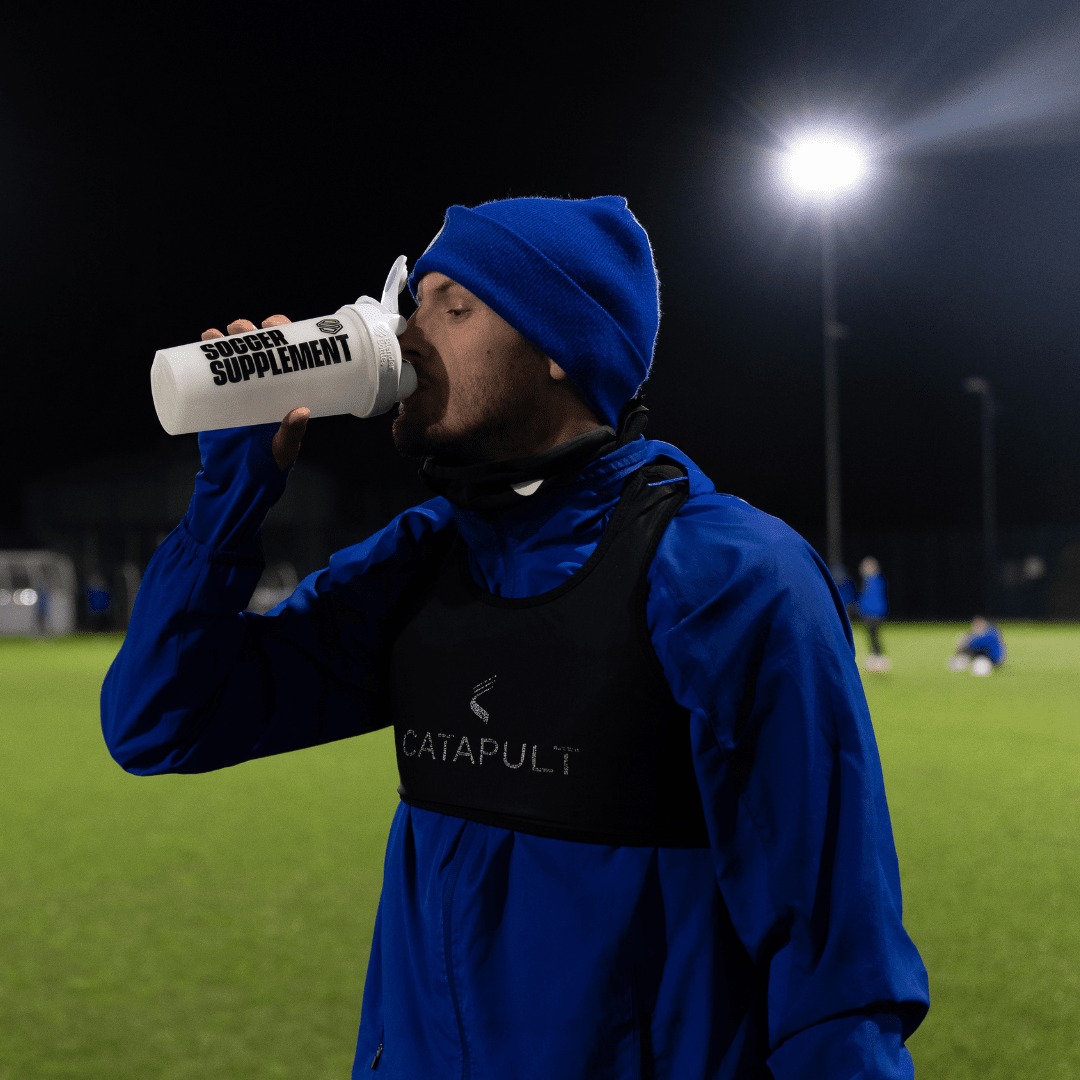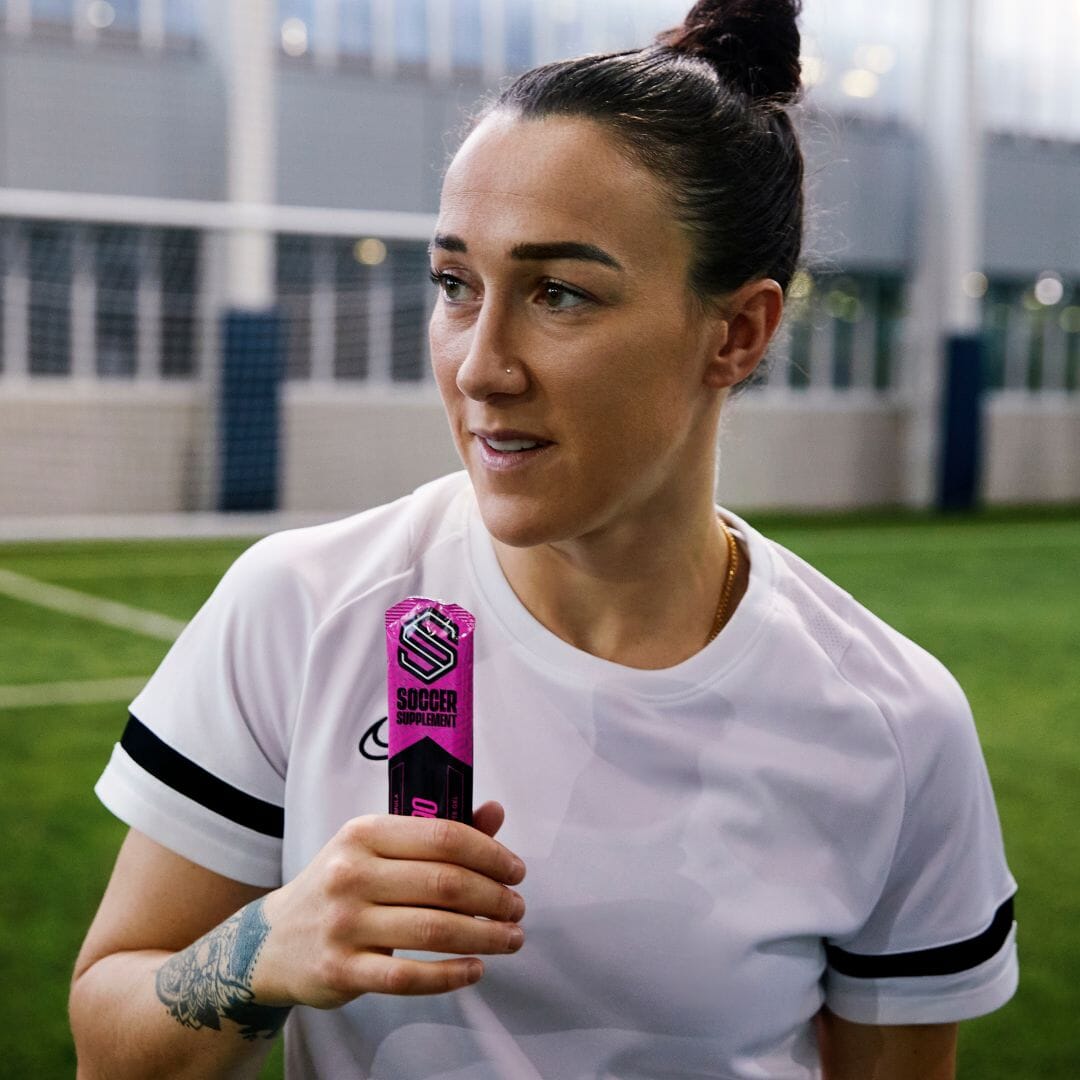Introduction
In this post, we take a look at football nutrition; what to eat and drink in order to be in peak condition for a match.
The objectives of pre-match nutrition are to maintain sufficient levels of hydration, blood glucose and amino acids. This is achieved via fluid, carbohydrate and protein intakes, respectively. Fat isn’t terribly important with respect to pre-match feeding (as will be outlined later). Given these objectives, I’ll give my pre-match football nutrition recommendations for each of the three macronutrients as well as highlighting some performance supplements that will help take your game to a higher level.
Football Nutrition: Pre-match Nutrition
Generally speaking, the pre-match period can be broken down into three timeframes: days, 2-4 hours and <60 minutes before training or matches.
Protein
• Days before a match - As normal (see our article on Creating a Footballer’s Diet for protein guidelines).
• 2-4 hours before a match - 25-40g of protein from high-quality sources (e.g. meat, fish, eggs, dairy or our Whey90® protein) can form the basis of a great meal during this period. Such quantities are sufficient to maximise rates of muscle protein synthesis,1,2 which will be important for minimising net muscle protein breakdown during the game, as well as potentially maintaining immune function.3
• <60 minutes before a match - In the event of an early kick-off - or when eating a meal 2-4 hours isn’t practical - in this instance, it is important to minimise the risk of gastrointestinal discomfort during the game. As such, protein should be kept on the lower end (20-25g) and ideally come from a liquid source for faster digestion (e.g Whey90®).
Carbohydrates
• Days before exercise (AKA carb loading) - Several strategies have been popularised in order to maximise glycogen storage capacity; the storage form of carbohydrate in your muscles. The most popular is carbohydrate loading. This technique is employed to cause above-normal glycogen storage (supercompensation). The typical model includes 3-4 days of glycogen depletion coupled with exhaustive exercise, followed by 3-4 days of carb-loading (500-600g/day) with a reduced training volume.4 However, linear loads (10-12g per kilogram of body mass per day for 1-4 days) have shown to be as effective as traditional carb loading.5 Given that football matches almost always last around 90 minutes, there isn’t a need to follow a strict carb loading protocol. Simply keeping your carb intake relatively high (5-8g of carbs per kg of body mass - higher end for those with higher training volumes) for 2-3 days prior to your match will suffice.
• 2-4 hours before a match - Research recommends around 200-300g of carbohydrate to be ingested 3-4 hours pre-exercise in the instance that the intake of carbohydrates during exercise is not feasible. However, 100-200g will suffice for most. The glycaemic index of the carb source does not matter; eat what you enjoy!
• <60 minutes before a match - In this instance, I recommend consuming between 30-60g of carbohydrate, ideally in the form of a Fuel90® gel or powder (e.g. sucrose, glucose, powdered oats, maltodextrin or our Hydrate90® energy drink) that you can mix with a protein shake. Despite being designed as a recovery supplement, our Recover90® recovery product would make a perfect and convenient meal to consume within the hour leading up to a game.
There are no guidelines as to how much fat you should consume in the hours leading up to a match. As a general rule, however, this can be as much as you like providing it doesn’t cause gastrointestinal issues or bloating.
Supplementation
In addition to food, there are a number of compounds that will help your performance on match day, the most notable of which is caffeine. When dosed at 3-6 mg per kg of body mass, this will help decrease feelings of fatigue, improve passing accuracy,6 agility,7 jumping and repeated sprinting performance.8 Caffeine, along with other active compounds (e.g. beta alanine, citrulline malate and alpha-GPC) in their optimal dosages can be conveniently taken in our Focus90® gel.
In addition to such ingredients, research into the effects of creatine, such as our Creapure® Creatine Monohydrate, when taken in a single dose (as opposed to chronic loading) has shown promising effects with regards to pre-match ingestion. For example, Cook and colleagues demonstrated that an acute dose of creatine (~100mg per kg of body mass) was able to improve passing accuracy in a group of rugby players, both in sleep deprived and non-sleep deprived states.9 It is theorised that creatine uptake in the brain was responsible for the observed effects by increasing cognitive ability.
If you want to learn more about nutrition in football take a look at our post-match and during-match nutrition guides.
Joseph Agu MSc.
Head of Science
Soccer Supplement®
Click here to shop our range of Footballer Performance Supplements
References
1. Moore, D. R. et al. Ingested protein dose response of muscle and albumin protein synthesis after resistance exercise in young men. Am. J. Clin. Nutr. 89, 161–168 (2009).
2. Macnaughton, L. S. et al. The response of muscle protein synthesis following whole-body resistance exercise is greater following 40 g than 20 g of ingested whey protein. 4, 1–13 (2016).
3. Gleeson, M. Immunological aspects of sport nutrition. Immunol. Cell Biol. Adv. online Publ. 94, 117–123 (2015).
4. Bergström, J., Hermansen, L., Hultman, E. & Saltin, B. Diet, muscle glycogen and physical performance. Acta Physiol. Scand. 71, 140–50 (1967).
5. Bussau, V. A., Fairchild, T. J., Rao, A., Steele, P. & Fournier, P. A. Carbohydrate loading in human muscle: An improved 1 day protocol. Eur. J. Appl. Physiol. 87, 290–295 (2002).
6. Foskett, A., Ali, A. & Gant, N. Caffeine enhances cognitive function and skill performance during simulated soccer activity. Int. J. Sport Nutr. Exerc. Metab. 19, 410–423 (2009).
7. Duvnjak-Zaknich, D. M., Dawson, B. T., Wallman, K. E. & Henry, G. Effect of caffeine on reactive agility time when fresh and fatigued. Medicine and Science in Sports and Exercise 43, 1523–1530 (2011).
8. Gant, N., Ali, A. & Foskett, A. The influence of caffeine and carbohydrate coingestion on simulated soccer performance. Int. J. Sport Nutr. Exerc. Metab. 20, 191–197 (2010).
9. Cook, C. J., Crewther, B. T., Kilduff, L. P., Drawer, S. & Gaviglio, C. M. Skill execution and sleep deprivation: effects of acute caffeine or creatine supplementation - a randomized placebo-controlled trial. J. Int. Soc. Sports Nutr. 8, 2 (2011).














